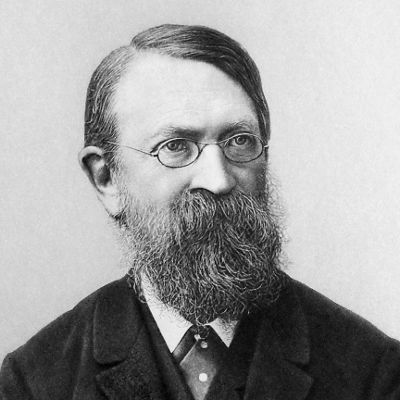Wittgenstein experiments
Joe wrote:
- JoshingThySelf wrote:
- Thought experiments are indispensably useful in science and philosophy, and the hilarious thing is that Wittgenstein used them all of the time. Ever read a little book called Philosophical Investigations? It may as well have been called Philosophical Thought Experiments.
Wittgenstein (from Philosophical Grammar):
"A thought experiment [gedankenexperiment] comes to much the same as an experiment which is sketched or painted or described instead of being carried out. And so the result of a thought experiment is the fictitious result of a fictitious experiment."
A sketch or a painting or a description of an experiment is not an experiment. Wittgenstein did not refer to his ideas as "thought experiments", and he rejected this phrase for blisteringly obvious reasons - as "ungrammatical". In the quote above - according to Witt, a thought experiment is a "fictitious experiment". He would not have entitled any of his books with such a contradictory phrase.
Ideas about experiments are not experiments. Experiments cannot occur under mind-dependent conditions, i.e. within the human imagination. For an experiment to occur, it must take place under mind-independent conditions - that only the world (which exists beyond and outside of human minds) provides.
- JoshingThySelf wrote:
- You and Wittgenstein don't know what the fuck you're talking about. Or were Galileo and Einstein just playing with non-existent ideas?

- Ernst Mach
- A thought experiment [gedankenexperiment] is an imaginary experiment.
- Ernst Mach
- Thought experiment is in any case a necessary precondition for physical experiment. Every experimenter and inventor must have the planned arrangement in his head before translating it into fact.
In 1897, Mach introduced the phrase "gedankenexperiment" (thought experiment) to the world. Prior to that - for a few decades, it had currency among German physicists. When funding was non-existent or an intended experiment was technically infeasible to implement, physicists pondered how possible experiments might turn out. They used them as "substitutes" for experiments. However, an experiment was required to translate the "planned arrangement" into fact (existence). Physicists (Mach and Einstein), being physicists, knew that "thought experiments" were products of the imagination. For Galileo to have referred to what he wrote as "gedankenexperiments", he would have had to have spoken German 300 years into his future.
To play with an idea is not to experiment. To conflate an idea about an experiment within the province of a thinker's mind with an experiment conducted in the province of a scientist's lab is a category mistake.
- JoshingThySelf wrote:
- Your pathetic attempt at staking claim to some "original" meaning of the term is a totally moot point, as terms take on additional meanings all of the time (a central point of Wittgenstein's, by the way) and the fact is that the term "thought experiment" has had an established meaning since Galileo's time.
Wittgenstein's approach to language has been so pitifully mauled, mutilated and murdered by you into an occult doctrine; whereby - since meanings shift over time, whatever gibberish humans eruct is logically flawless, i.e. "An imaginary experiment is an experiment", "a tall man is not a man", "a maple tree is a rubber chicken", etc.
Again, the only way that this German phrase, "gedankenexperiment", could have been in vogue during "Galileo's time" is if the people in Renaissance Italy spoke German 300 years into their future. Your linguistic, historical and scientific anachronisms are stunning. They - literally - take my breath away.
- JoshingThySelf wrote:
- They're not actual experiments--THEY ARE THOUGHT EXPERIMENTS, you pompous prig.
Throughout this counter-logical debacle, you appealed to an imaginary, linguistic tradition, stretching-back to "Galileo's time" - in which you stated that the phrase "thought experiment" was spoken by human beings, and you invoked this imaginary tradition to leverage the theory that non-actual (thought) experiments are experiments. Your entire "argument" is predicated on a non-actual human history and the existence of non-actual experiments. Even though I've pointed-out these blunders in excruciatingly minute detail, you exclude the possibility of admitting that your blunders defuse your "argument".
There's an ancient tradition/common language usage/speech community, containing the religious phrases: "demonic possession", "miracle of transubstantiation" and "holy savior"; therefore - according to your balmy mis-interpretation of linguistic philosophy, people are possessed by the devil, wine and crackers turn into the blood and flesh of Christ and a holy savior exists - because speakers in an unbroken, Christian speech community publicly verbalized these phrases for over the course of ~2Kyr.
How could the mere persistence - alone - of a 110 year phrase-usage-tradition convert an imaginary (mind-dependent) experiment into an existing experiment? Could a 2 Byr - in duration - speech-tradition turn an imaginary (mind-dependent) wombat into an existing wombat?